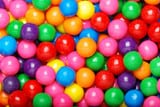Article One – For full article in Food Navigator go to the link below
Natural halal colours gaining ground in the Middle East, says Sensient
 Sensient is making inroads in the Middle Eastern market with a full range of natural, halal-certified colours, the company says.
Sensient is making inroads in the Middle Eastern market with a full range of natural, halal-certified colours, the company says.
Article Two – USA:
The War Against Macaroni and Cheese: Petition Asks Kraft to Remove Artificial Dyes
Like many people in the United States, Lisa Leake grew up eating Kraft Macaroni & Cheese. She even used to whip up a blue box of the iconic comfort food for her kids once a week or so. But when she took a closer look at the ingredient list she immediately decided to stop serving it to her family.
The problem: Yellow 5 and Yellow 6, two artificial food dyes that give the dish it’s day-glo hue but also contain known carcinogens. In Europe, foods that contain Yellow 5 are required to carry a warning label, and the chemical has been banned outright in some countries, including Norway and Austria. In 2008, the Center for Science in the Public Interest petitioned the FDA to ban eight different food dyes found in nearly everything kids like to eat today (even plain white marshmallows have blue dye in them).
“A lot of American companies use ingredients in the products they sell in the US that are no longer used, and are in some cases banned in other countries,” Leake told Yahoo! Shine in an interview on Wednesday. “We were just appalled.”
In the United Kingdom, Kraft’s “Cheesey Pasta” comes in a red-and-yellow box—and doesn’t contain artificial food dyes. Instead, the company uses natural colors from paprika extract and beta-carotene to create the dish’s iconic color for British consumers.
Leake and Vani Hari, who writes the blog Food Babe and guest posts once a month on Leake’s blog, 100 Days of Real Food, decided to launch a petition at Change.org, calling on Kraft to give U.S. consumers the same chemical-free formulation that they currently sell in the U.K. They racked up more than 18,000 signatures in less than 24 hours.
Kraft isn’t the only company that markets different versions of their products. “McDonald’s french fries has basic ingredients in the U.K.: potatoes, salt, and oil,” Hari told Yahoo! Shine in an interview. “But here in the United States they use an ingredient that’s an anti-foaming agent that’s used in Silly Putty.”
Hari decided to do some investigating, and found plenty of other offenders: Betty Crocker cake mixes, Pringles potato chips, Rice Krispies, Starburst candies, and Diet Coke were among those that use artificial flavorings, colorings, and preservatives in the U.S. but leave them out of their European versions. Kellogg’s strawberry Nutri-Grain cereal bars, for example, are colored with Red 40, Yellow 6, and Blue 1 in the United States but use beetroot, annatto, and paprika in their “soft bake bars” sold in the United Kingdom.
“These companies already have better, safer versions of their products formulated and for sale in other countries overseas,” Leake pointed out. “In some cases, that’s because their consumers demanded it. But nobody has done anything over here yet.”
 Food bloggers Vani Hari and Lisa Leake tested both the U.K. and the U.S. versions of Kraft’s macaroni and cheese …Still, the women, both of whom are based in North Carolina, decided to focus their petition on Kraft first.
Food bloggers Vani Hari and Lisa Leake tested both the U.K. and the U.S. versions of Kraft’s macaroni and cheese …Still, the women, both of whom are based in North Carolina, decided to focus their petition on Kraft first.
“There is a health component here with Kraft Macaroni & Cheese,” Hari explained to Yahoo! Shine. “The one thing that really angers Lisa and I, and why we’re so appalled at this, is that Kraft Macaroni & Cheese is specifically aimed at children.”
Yellow 5, also known as tartrazine, has been linked to long-term health problems including asthma, skin rashes, and migraines, as well as slightly decreased sperm counts in mice; it has also been known to affect behavior in children who have diagnosed hyperactivity issues. It’s found in bright-yellow products like Mountain Dew and some candies as well.
“Their brains are developing, they don’t need to be exposed to these chemicals,” Hari told Yahoo! Shine. “The fact that they have a safer version for kids overseas and not here is a travesty.”
“Our petition is honestly bigger than just Kraft Macaroni & Cheese,” Leake told Yahoo! Shine. “We decided that if we could convince the largest food company to change its iconic food products to match the formula that its already created for other countries, that could hopefully allow Kraft to lead the way for other companies to follow suite.”
To make sure that the artificial food dyes weren’t actually part of the pasta’s flavor profile, Hari and Leake asked a friend in the U.K. to send them a box of Kraft’s “Cheesey Pasta” so they could compare it with the U.S. version. (They included a video of the taste test with their petition.) The results? They taste—and look—virtually the same.
“Artificial dyes provide no value to the food they’re in,” Leake pointed out. “They provide no nutritional value, they don’t affect the taste or the flavor of the food they’re in, yet they do pose risks. So there’s really no benefit in having them there.”
A spokesperson for Kraft told Yahoo! Shine on Wednesday that the company had recently expanded its macaroni and cheese line. “We know some people prefer foods without certain ingredients,” Lynne Galia of Kraft Foods Corporate Affairs told Yahoo! Shine in an email. “We now offer a multitude of products without added colors, as well as products with natural food colors,” including their organic, “deluxe,” and “homestyle” macaroni and cheese options.
“The safety and quality of our products is our highest priority and we take consumer concerns very seriously,” Galia wrote. “We carefully follow the laws and regulations in the countries where our products are sold. So in the U.S., we only use colors that are approved and deemed safe for food use by the Food and Drug Administration.”
But Hari and Leake — as well as the thousands of people who have signed on to their petition — feel that Kraft can do more.
“Kraft is the largest U.S. based food company,” Hari told Yahoo! Shine. “The government hasn’t acted—there have been multiple government petitions that have not produced the results that we were hoping to see with the FDA. But if we target a specific company and they make the change, this could snowball into finally eliminating artificial dyes and safeguarding our children.”
“American food companies have already formulated safer versions of these products for other countries overseas,” Leake added. “We deserve the same here in the U.S. It’s that simple.”



